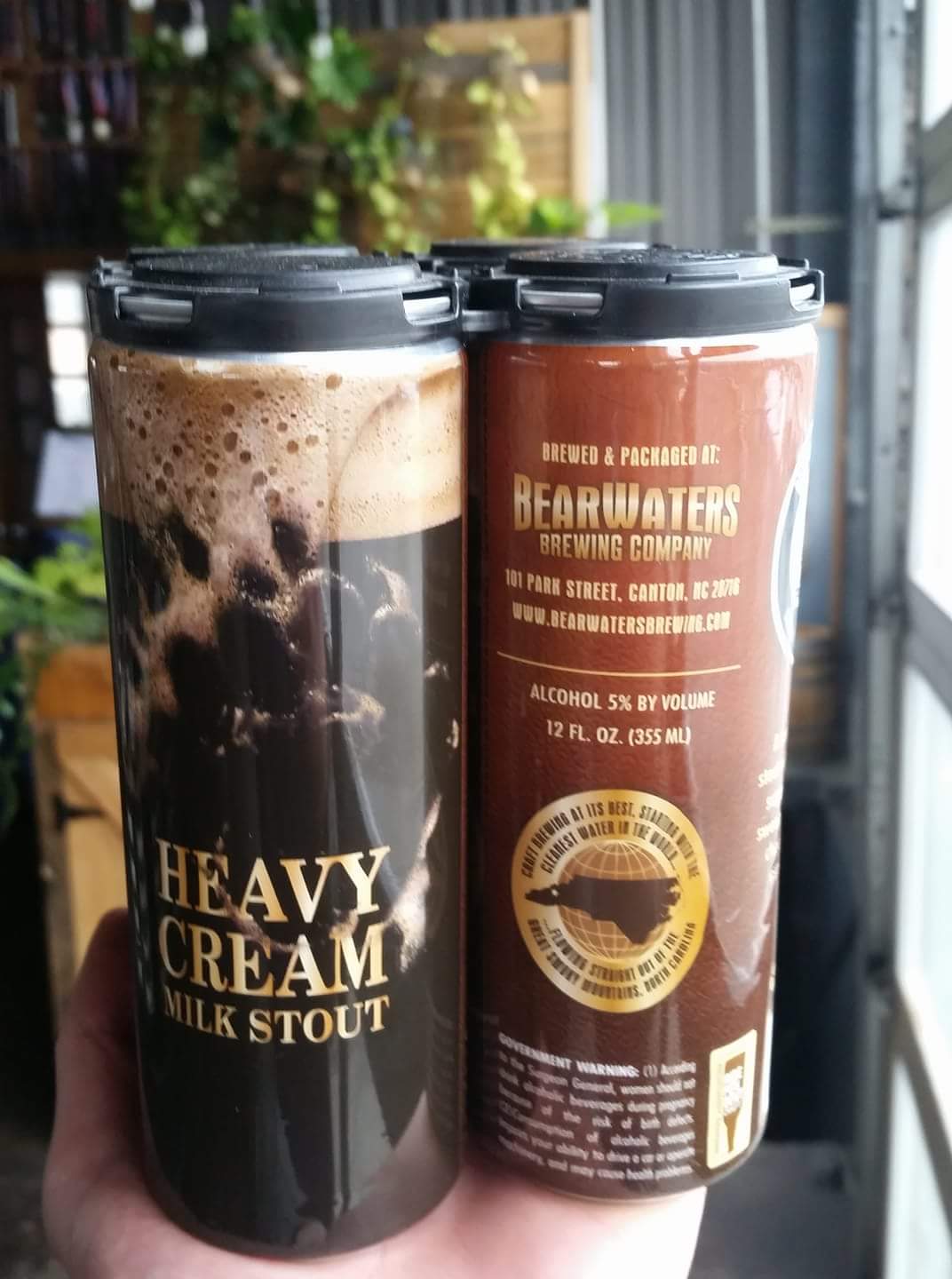The beer can has been around since 1935, but this old-school package continues to be embraced by area brewers. And they’re not discouraged by a pending 10 percent tariff on aluminum imports set to take effect this month. That tax will increase the cost of beer cans, but it’s uncertain just how much more brewers will pay or whether the hike will be passed along to beer drinkers.
Both BearWaters Brewing Co. in Canton and Homeplace Beer Co. in Burnsville have just released their first cans, joining Pisgah Brewing Co., Wicked Weed Brewing, Catawba Brewing Co., Oskar Blues Brewery and other local brands that have embraced the can as an affordable and sustainable way to package ales and lagers. It was Oskar Blues, which has its East Coast brewery in Brevard, that in 2002 was among the first craft brewers to use cans rather than glass bottles.
BearWaters has released cans of Sliding Rock American Mild Ale and Heavy Cream Stout. Next out will be Still Paddle IPA. Brewery founder Kevin Sandefur says cans made more sense than bottles, largely because BearWaters is “marketing to the outdoors crowd.” The brewery is using 12-ounce “slim” cans and selling them in an eight-pack box. The cans are the same height as a 16-ounce package, but narrower in diameter.
“You can put more of these in a cooler or a tackle box,” Sandefur says. “They pack really nice into outdoor gear. And they’re easy to get your hand around and hold.”
Sandefur is hoping the can will stand out in a competitive craft beer scene. The first batch sold out at a Canton-area Ingles supermarket. He’s ordering 20,000 cans at a time and paying about 25 cents each for them. As for the aluminum tariff, he’s watching to see what it means.
“It will have some impact,” Sandefur says. “Time will tell. We have a small margin of tolerance [for pricing]. We can absorb a little bit of cost fluctuation, but not a lot. If consumers see an increase, it will probably be industrywide. I don’t see that it will impact one particular brewery over another.”
Homeplace has just released cans of its Faith Healer Session IPA and plans to add Frankie Amber Lager later this year. As a means of packaging, brewery owner John Silver thinks cans seem to be the direction that craft brewing is going. “They’re like a mini-billboard for your brand, and the can is better for travel and outdoor activities,” he says. “And they keep beer fresher longer.”
Silver has had plenty of experience in beer canning from his time working as a brewer at Oskar Blues. For his nearly year-old brewery, he’s ordering 5,000 empty cans at a time and is paying about 25-30 cents each. If the tariff only raises the price of a can by a fraction of a penny, he feels it won’t impact consumers, though he notes some in the industry believe that smaller brewers will be hurt most by the federal action. “We’ll just have to see what the numbers are,” he says. “We have no clear idea of what it means yet.”
Back in 2012, Asheville Brewing Co. was the first Asheville-area brewery to use beer cans. “When we would go outdoors, we would always use cans,” says brewery President Mike Rangel. About the same time, cans were becoming more affordable for smaller brewers, he says. Asheville Brewing orders about 100,000 cans at a time, paying around 10 cents for printed cans. For shrink-wrapped cans, the cost is about 18 cents. Rangel expects the tariff to add about 2 cents to the cost of a can.
Highland Brewing Co. orders cans by the truckload — that’s 184,755 at a time, says brewery founder Oscar Wong. The company added cans in 2016, but still sells about 80 percent of its beer in bottles. Consumer demand for cans led the brewery to adopt the package. “In a quick turn overnight, the public went from not accepting cans to just taking off,” Wong says.



Before you comment
The comments section is here to provide a platform for civil dialogue on the issues we face together as a local community. Xpress is committed to offering this platform for all voices, but when the tone of the discussion gets nasty or strays off topic, we believe many people choose not to participate. Xpress editors are determined to moderate comments to ensure a constructive interchange is maintained. All comments judged not to be in keeping with the spirit of civil discourse will be removed and repeat violators will be banned. See here for our terms of service. Thank you for being part of this effort to promote respectful discussion.